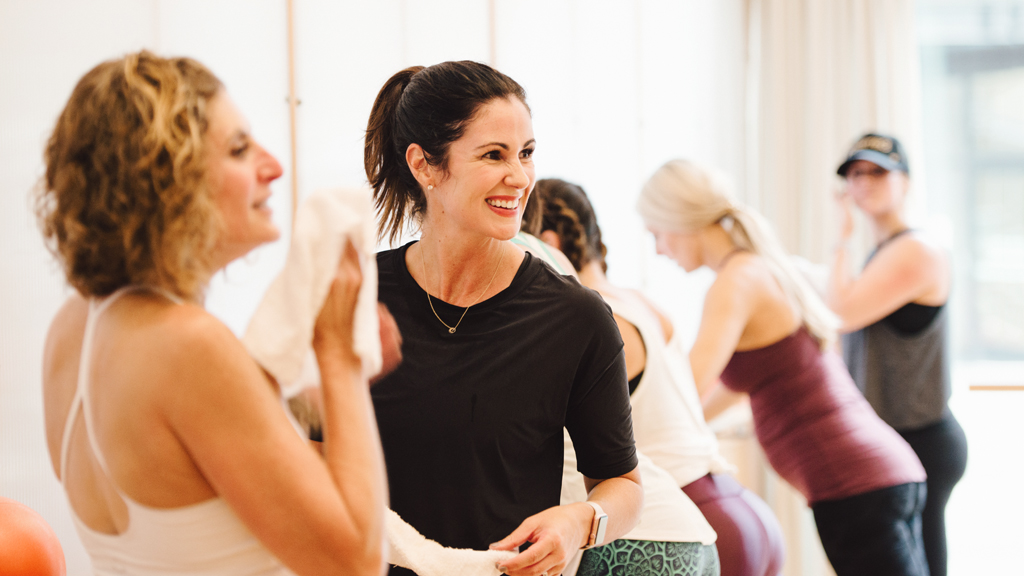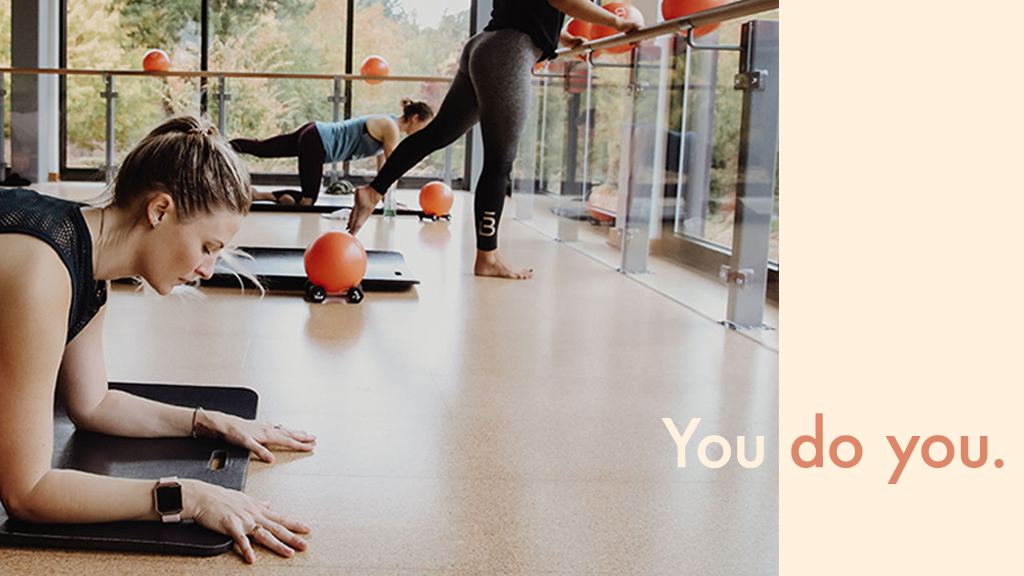Connect
5 RULES FOR FINDING AN ACCOUNTABILITY PARTNER (#1 MAY SURPRISE YOU!)
Have you ever noticed how much easier it is to stick to a goal when you have someone cheering you on? It’s the power of accountability—and it’s real. Research suggests that when we regularly update another person on our progress, we more than double our chances of achieving our goals.
So should you grab your best friend and tell her your latest exercise goals? Not so fast. When it comes to an accountability partner, a lot depends on whom you choose and how you navigate the relationship. Read on for our tips on what to look for in an accountability partner, the key steps to take to help you reach our goal, and why rewards along the way are important.
CHOOSE YOUR PARTNER (CAREFULLY). Telling someone about a goal can feel vulnerable, so our first instinct when it comes to choosing an accountability partner is often to go with someone we’re already extremely comfortable with, like a partner or a best friend. But the comfort level and established patterns you have with that person can actually sabotage your plan. Think about it: If you’re tempted to skip a workout and hit happy hour instead, not only will you have no trouble admitting it to your best friend—you’ll probably invite her along for the fun. But if your accountability partner is a new friend, you’ll be less likely to slip into old patterns and more apt to stay true to your goals.
BE SPECIFIC—AND REALISTIC—ABOUT YOUR GOALS. Anyone who has ever made a New Year’s resolution to “get in shape” or “eat healthier” knows that vague goals are the enemy of achievement. The more specific you can be about your goal, the more likely you are to make it happen. For example, instead of pledging to “be active” this summer, define what that means to you (three workouts a week? Four? Moving every day?), and then come up with a detailed plan to make it happen. And as tempting as it can be to go big with your goals (“I’m going to work out for an hour every day!”), know that the loftier the goal, the harder it is to stick to. We designed barre3 Anywhere with this exact principle in mind. By asking you to commit to just one 10-minute workout each day, we’re giving you an achievable goal that will leave you feeling accomplished—and incredible.
SCHEDULE REGULAR CHECK-INS. When you know you’re going to “report” to someone about your progress, you’re more likely to make sure you do whatever it takes to make sure that report is positive. It’s essentially peer pressure, but the good kind. Set up regular check-in sessions with your accountability partner at least once a week (and ideally even more frequently) to help keep yourself motivated.
PLAN SMALL REWARDS ALONG THE WAY. Anytime we work toward a goal, we’re usually shifting our life in some way—and that shift can be tough to adjust to. To stay on track, set up small rewards for yourself along the way. But—and this is key—make sure the rewards don’t sabotage your goals. For example, if your goal is built around moving every day, your reward at the end of the week shouldn’t be a day of not moving. Instead, treat yourself to something that serves you and your goal, like a delicious, energizing smoothie, or a full-body massage.
HAVE A DEFINITE END POINT. Whatever your goal is, come up with an end date. This doesn’t mean you’ll go back to old behaviors as soon as you reach that date—in fact, it’s just the opposite. Crossing the finish line will give you a well-earned sense of accomplishment, and that “I did it!” feeling is exactly what you need to keep this good thing going.
Have you ever noticed how much easier it is to stick to a goal when you have someone cheering you on? It’s the power of accountability—and it’s real. Research suggests that when we regularly update another person on our progress, we more than double our chances of achieving our goals.
So should you grab your best friend and tell her your latest exercise goals? Not so fast. When it comes to an accountability partner, a lot depends on whom you choose and how you navigate the relationship. Read on for our tips on what to look for in an accountability partner, the key steps to take to help you reach our goal, and why rewards along the way are important.
CHOOSE YOUR PARTNER (CAREFULLY). Telling someone about a goal can feel vulnerable, so our first instinct when it comes to choosing an accountability partner is often to go with someone we’re already extremely comfortable with, like a partner or a best friend. But the comfort level and established patterns you have with that person can actually sabotage your plan. Think about it: If you’re tempted to skip a workout and hit happy hour instead, not only will you have no trouble admitting it to your best friend—you’ll probably invite her along for the fun. But if your accountability partner is a new friend, you’ll be less likely to slip into old patterns and more apt to stay true to your goals.
BE SPECIFIC—AND REALISTIC—ABOUT YOUR GOALS. Anyone who has ever made a New Year’s resolution to “get in shape” or “eat healthier” knows that vague goals are the enemy of achievement. The more specific you can be about your goal, the more likely you are to make it happen. For example, instead of pledging to “be active” this summer, define what that means to you (three workouts a week? Four? Moving every day?), and then come up with a detailed plan to make it happen. And as tempting as it can be to go big with your goals (“I’m going to work out for an hour every day!”), know that the loftier the goal, the harder it is to stick to. We designed barre3 Anywhere with this exact principle in mind. By asking you to commit to just one 10-minute workout each day, we’re giving you an achievable goal that will leave you feeling accomplished—and incredible.
SCHEDULE REGULAR CHECK-INS. When you know you’re going to “report” to someone about your progress, you’re more likely to make sure you do whatever it takes to make sure that report is positive. It’s essentially peer pressure, but the good kind. Set up regular check-in sessions with your accountability partner at least once a week (and ideally even more frequently) to help keep yourself motivated.
PLAN SMALL REWARDS ALONG THE WAY. Anytime we work toward a goal, we’re usually shifting our life in some way—and that shift can be tough to adjust to. To stay on track, set up small rewards for yourself along the way. But—and this is key—make sure the rewards don’t sabotage your goals. For example, if your goal is built around moving every day, your reward at the end of the week shouldn’t be a day of not moving. Instead, treat yourself to something that serves you and your goal, like a delicious, energizing smoothie, or a full-body massage.
HAVE A DEFINITE END POINT. Whatever your goal is, come up with an end date. This doesn’t mean you’ll go back to old behaviors as soon as you reach that date—in fact, it’s just the opposite. Crossing the finish line will give you a well-earned sense of accomplishment, and that “I did it!” feeling is exactly what you need to keep this good thing going.










2 people have left a comment. Join the conversation!
View Comments